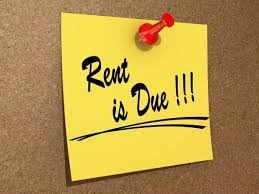It’s a sad fact.
Because of the COVID-19 pandemic, many tenants simply can’t pay their rent.
That’s why the government declared an unprecedented, nationwide moratorium on evictions for non-payment of rent.
But tenants aren’t the only ones to suffer…
Landlords have financial responsibilities too!
If they can’t collect the rent that’s owed them, they are also up the creek.
They don’t get their money and they can’t deduct tax losses.
The bottom line? If you are a landlord and want to protect your bottom line you should…
Read the full article
Government to Landlords: Drop Dead!

Eleven facts every landlord should know.
(Get the good and bad news)
- Bad news: The CDC has barred most evictions for non-payment of rent through December 31, 2020.
- Good news: Landlords may still be able to evict problem-tenants for reasons other than not paying rent. This includes criminal activity or damage to rental property.
- Good news: The moratorium does not excuse or reduce any tenant’s rent. The rent continues to accrue during the moratorium.
- Good news: Tenants are supposed to pay as much rent as they can during the moratorium and seek government rent assistance if necessary.
- Good news: Landlords may be able to sue a tenant for unpaid rent during the moratorium.
- Good/Bad news: Landlords may wish to work out payment-plans with tenants by offering temporary rent reductions. At least landlords will get some money upfront.
- Good news: Some landlords may be able to get their mortgage payments delayed for a limited time.
- Good news: The SBA’s low-interest EIDLs are loans available to landlords who need a quick cash infusion.
- Bad news: Unpaid rent is not deductible by landlords.
- Good news: Landlords who suffer rental losses for 2020 may be able to deduct them from non-rental income. They can use either the $25,000 allowance or the real estate professional exemption under the passive loss rules.
- Good news: Non-deductible rental losses become suspended passive-losses that may be deducted against rental income in future years or when the property is sold.